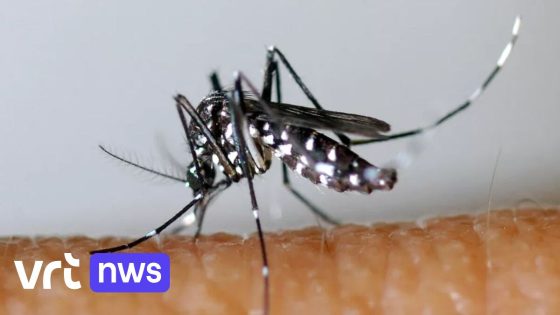The tiger mosquito is now successfully overwintering in eight Belgian municipalities, according to recent reports from the Institute of Tropical Medicine and Sciensano. This development highlights the growing presence of the tiger mosquito in Belgium, raising concerns about its impact on public health and local ecosystems.
- Tijgermug overwintert in 8 Belgische gemeenten
- Instituut voor Tropische Geneeskunde meldt situatie
- Sciensano bevestigt tijgermugpopulatie in kaart
- Oproep om tijgermuggen te melden
- Populatiegegevens helpen verspreiding monitoren
- Bewustzijn vergroten rond tijgermugbestrijding noodzakelijk
As of 2025-08-25 14:15:00, authorities urge residents to report sightings of tiger mosquitoes. Why is this important? Tracking their population helps experts understand their spread and implement effective control measures. Could this invasive species become a permanent part of Belgium’s environment?
Understanding the tiger mosquito’s ability to survive winter in multiple locations is crucial for managing potential risks. Here’s what you should know:
How does this affect Belgium’s public health landscape? The tiger mosquito is known to carry viruses such as dengue and chikungunya, which could pose new challenges. Monitoring helps:
- Map the mosquito’s distribution accurately across Belgium
- Inform targeted pest control and prevention strategies
- Raise public awareness to reduce breeding sites
- Support research on climate impact and mosquito behaviour
Looking ahead, community involvement is key. Reporting tiger mosquito sightings can help authorities keep populations in check. Are you ready to contribute to a safer, mosquito-aware Belgium?

































